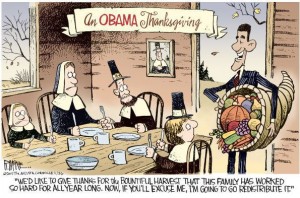A view from America, previously published at Forbes.com
This column debuted a year ago and proceeded to make a troubling announcement: World peace has broken out. The political implications of world peace are dramatic — but difficult to credit.
A year later, however, the Annunciation of the Peace has turned into something of a cottage industry. The AP’s Seth Borenstein reports:
We’ve never had it this peaceful. That’s the thesis of three new books, including one by prominent Harvard psychologist Steven Pinker. Statistics reveal dramatic reductions in war deaths, family violence, racism, rape, murder and all sorts of mayhem. In his book, Pinker writes: ‘The decline of violence may be the most significant and least appreciated development in the history of our species.’
The reduction in world mayhem seems alien. TV news and newspapers present freighted drama, not dry facts. That obscures the trend. Also, a dramatic peace trend sounds implausible to those habituated to war.
But scholars of such matters observe that the number of war battlefield deaths has dropped by a factor of 1,000, falling from 500 per 100,000 in prehistoric times, to 60-70 in the 19th and 20th century (notwithstanding epic wars) to… less than one such death per 300,000 now in the 21st. Genocide deaths have dropped by well over a factor of 1000 from 1942 to 2008.
The number of republics has quintupled in just 65 years; the number of authoritarian regimes has dropped from 90, 35 years ago, to 25. In England, murder fell by a factor of 100 from the Middle Ages until today. The trends are much broader than this and although a single nuclear exchange or terrorist incident could skew the numbers, even such a horrific tragedy, Heaven forbid, would not skew the secular trend.
Much of this is documented in Steven Pinker‘s book The Better Angels of Our Nature: Why Violence Has Declined, Joshua Goldstein’s Winning the War on War, and in a new study by the Human Security Report Project.
In short, it is becoming nearly irrefutable that peace has broken out. To proponents of human flourishing in liberty, dignity and prosperity, this is wonderful news. To the political class, not so much.
The late Randolph Bourne wrote an essay, posthumously published in 1918, entitled “War is the Health of the State.” Bourne observed:
Government is obviously composed of common and unsanctified men, and is thus a legitimate object of criticism and even contempt. If your own party is in power, things may be assumed to be moving safely enough; but if the opposition is in, then clearly all safety and honor have fled the State. … ….
In a republic the men who hold office are indistinguishable from the mass. Very few of them possess the slightest personal dignity with which they could endow their political role; even if they ever thought of such a thing. And they have no class distinction to give them glamour. In a republic the Government is obeyed grumblingly, because it has no bedazzlements or sanctities to gild it. …
The moment war is declared, however, the mass of the people, through some spiritual alchemy, become convinced that they have willed and executed the deed themselves. They then, with the exception of a few malcontents, proceed to allow themselves to be regimented, coerced, deranged in all the environments of their lives….
The citizen throws off his contempt and indifference to Government, identifies himself with its purposes, revives all his military memories and symbols, and the State once more walks, an august presence, through the imaginations of men.…
All of which goes to show that the State represents all the autocratic, arbitrary, coercive, belligerent forces within a social group, it is a sort of complexus of everything most distasteful to the modern free creative spirit, the feeling for life, liberty, and the pursuit of happiness. War is the health of the State.…The rulers soon learn to capitalize the reverence which the State produces in the majority, and turn it into a general resistance toward a lessening of their privileges.”


